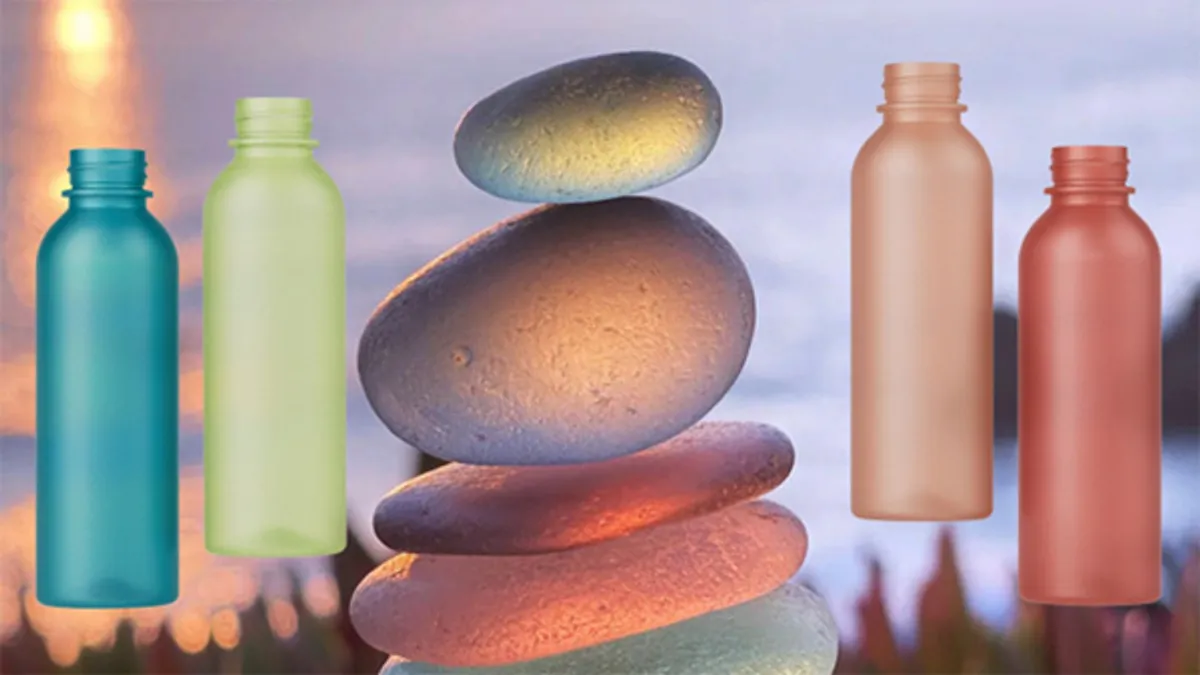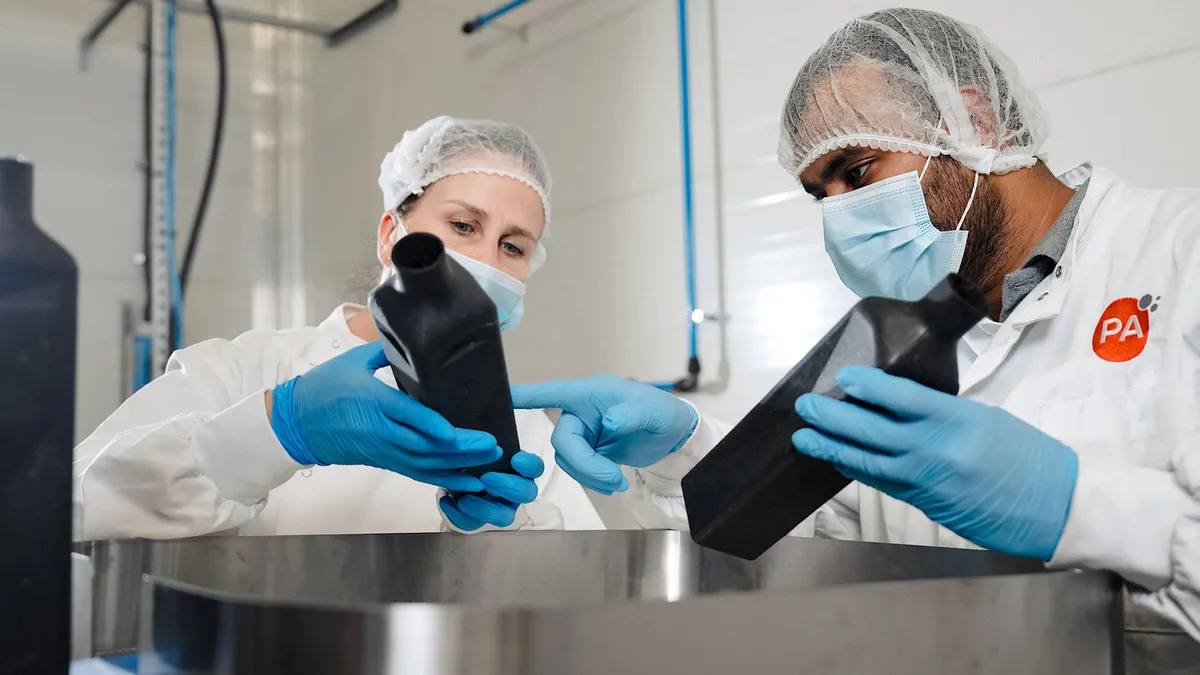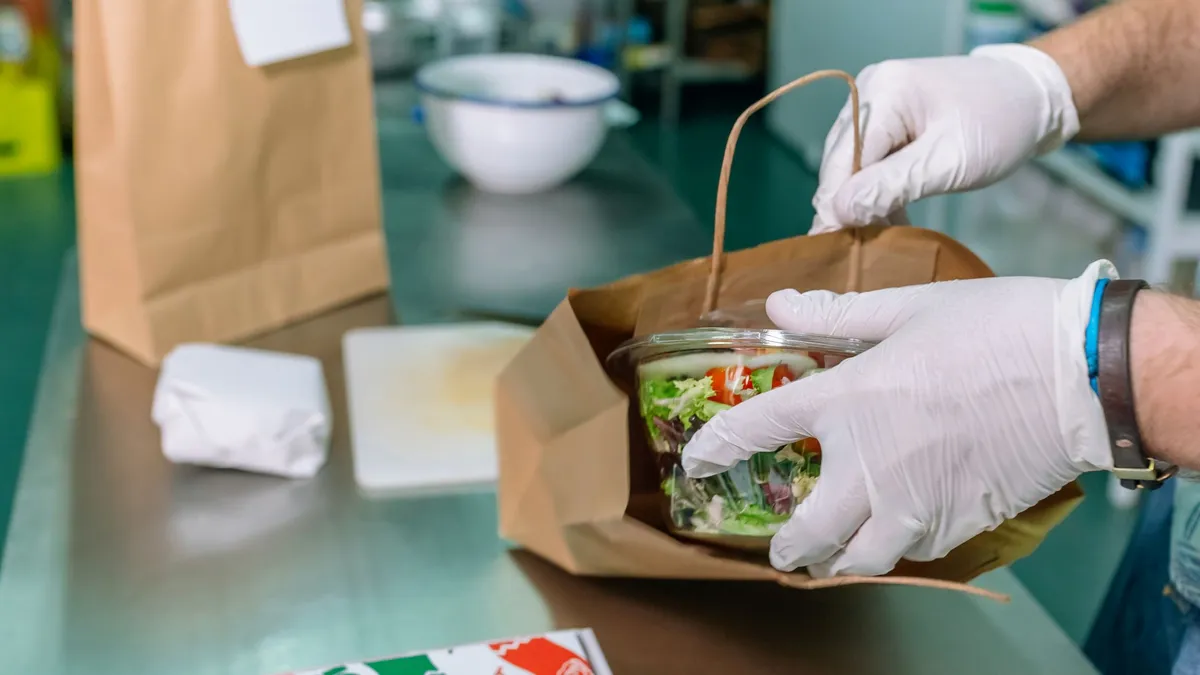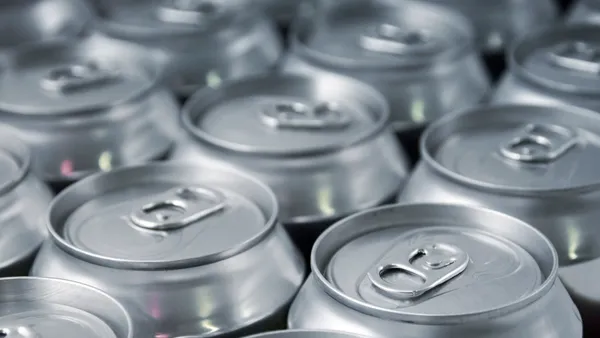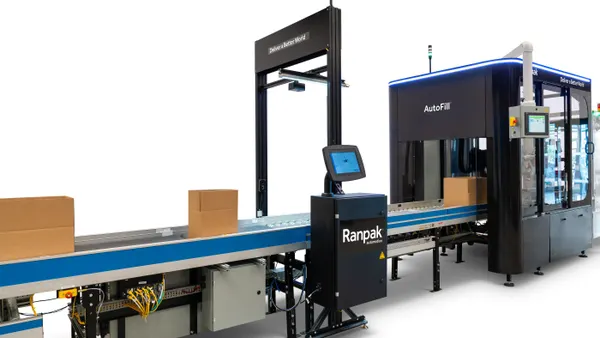Companies constantly innovate their packaging to get better performance, improve marketability and enhance sustainability. Here’s a look at some of the recent products and innovations on Packaging Dive’s radar.
Glassy plastic
Specialty plastic producer Ampacet released a collection of PET that looks and feels like colored, weathered sea glass. According to the company, the products made from this plastic can be recycled into textile fibers, such as carpet, just like other forms of colored PET. The move comes as some beverage packaging is switching to clear PET to enhance recyclability. The company said in a news release that the visual and textural effects enhance product shelf appeal.
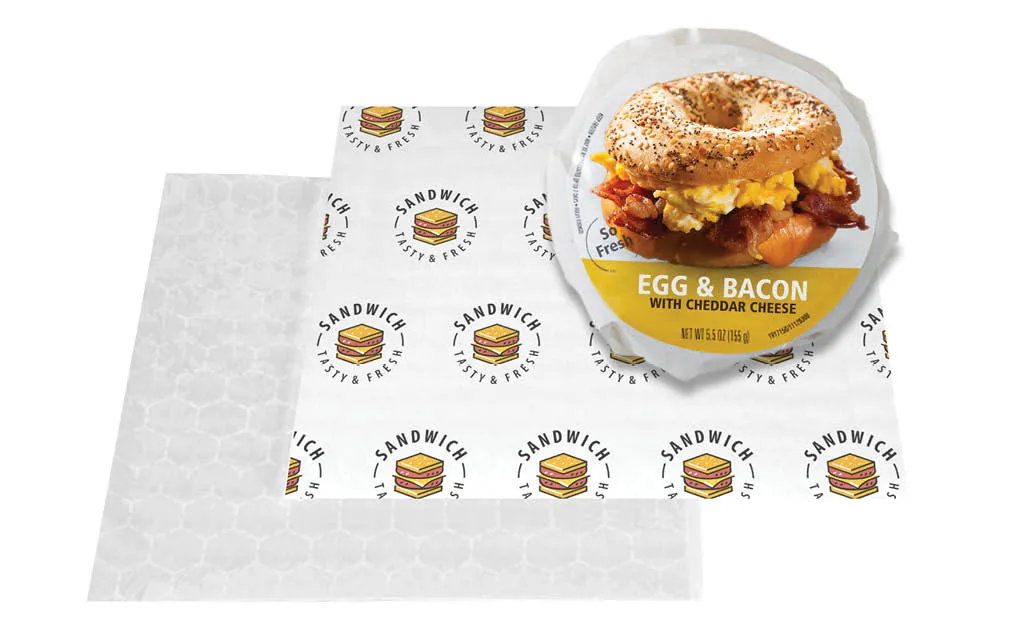
A wrap so hot it’s cool
Novolex brand Bagcraft introduced a multilayer wrap for grab-and-go hot and freshly made foods. The wrap is designed to preserve freshness for food items that move between environments of different temperatures, such as freezers and ovens.
The non-fluorinated, oil- and grease-resistant paper is laminated to a liner in a honeycomb pattern that creates an insulated layer. The lamination has anti-curling properties and is more puncture-resistant than foil-based options, the company said in a statement.
The manufacturer developed the flexible packaging in response to a convenience store’s request for a solution that suits grab-and-go hot sandwiches, Tim Coulson, director of technology, paper, confirmed in the statement.
This comes as packaging companies and their customers are looking to shift away from materials that include per- and polyfluoroalkyl substances, commonly referred to as PFAS. Few alternatives have emerged yet that match PFAS’ grease and moisture resistance properties.
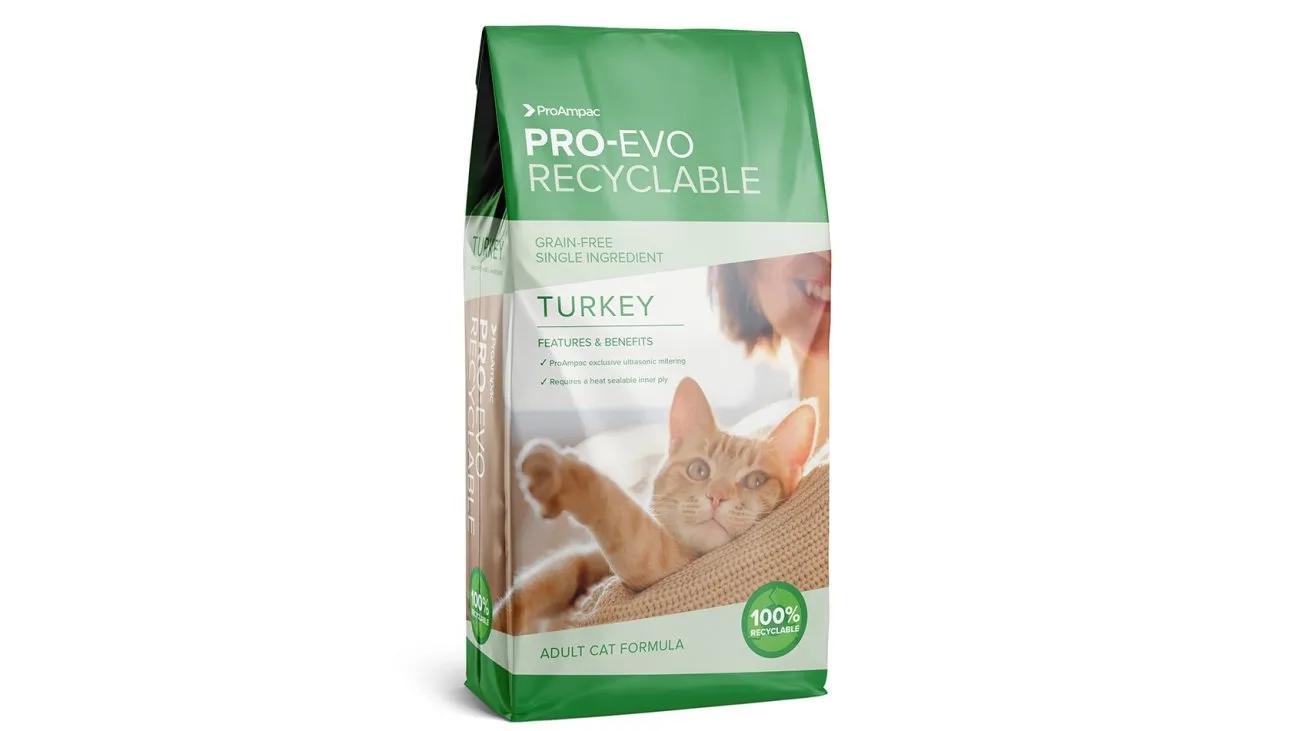
Get the grease out
ProAmpac launched a patent-pending multi-walled, grease-resistant paper bag that it says is “certified for curbside recycling.” Conventional pet food bags often are constructed from multiple materials or contain hard-to-recycle plastics that make them incompatible with curbside programs.
The company says the self-opening bag is best suited for dry pet food. The bag can be filled with standard equipment, and the moisture barriers maintain the food freshness without the addition of PFAS.
Heating up recycling
Labels are a long-time barrier to better recycling, but Avery Dennison and Dow co-developed a product that could help. The new hotmelt label adhesive lets polyolefin film labels get mechanically recycled together with the PP or PE products to which they’re affixed. This hotmelt is based on the same chemistries as the PP or PE packaging and therefore the whole thing can be treated as a monomaterial. According to the company, the labels are approved by nonprofit certification group Recyclass “for recycling in the HDPE colored stream in European markets.”
The companies say the innovation doesn’t compromise the adhesive’s performance. Hotmelt labels have been employed for decades as an option for use in low temperatures and on rough or other difficult-to-label packaging surfaces. However, the multimaterial nature of the final package with a label can make it unacceptable for conventional curbside recycling programs unless users actively separate the two components.
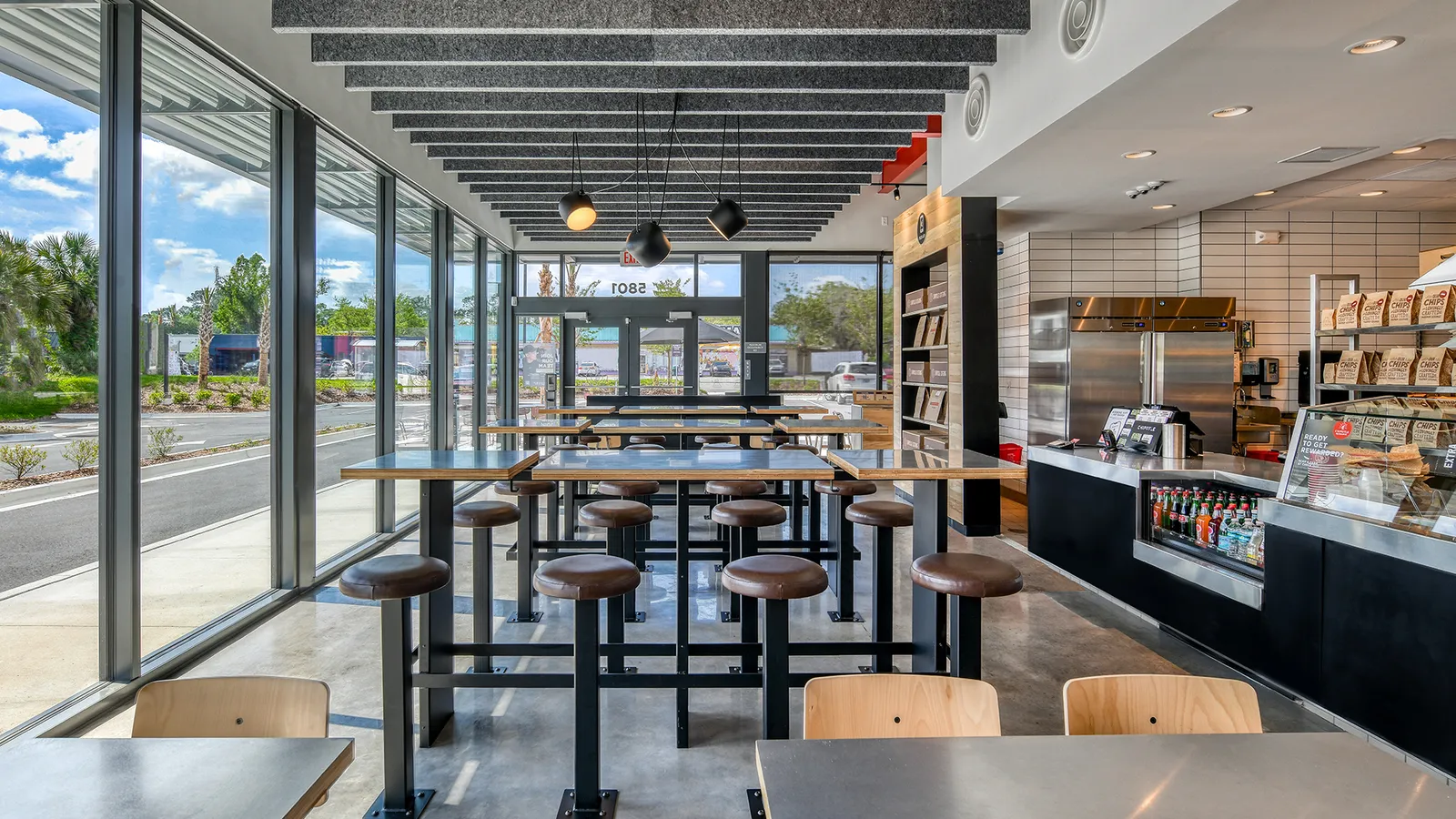
Serving up sustainability
Fast casual restaurant chain Chipotle Mexican Grill is piloting a more sustainable, all-electric restaurant design. Biodegradable service ware — cutlery, straws, bowls, cups and lids — is one of the key design concepts, along with rooftop solar panels; smaller, electric cooking equipment; cactus-based leather for chairs; and artwork made from recycled corn husks. Chipotle has used compostable bowls for years, although it was among the food companies whose service ware came under fire in 2019 for containing PFAS; it swapped out for PFAS-free bowls in 2020.
Bottles for the light of day
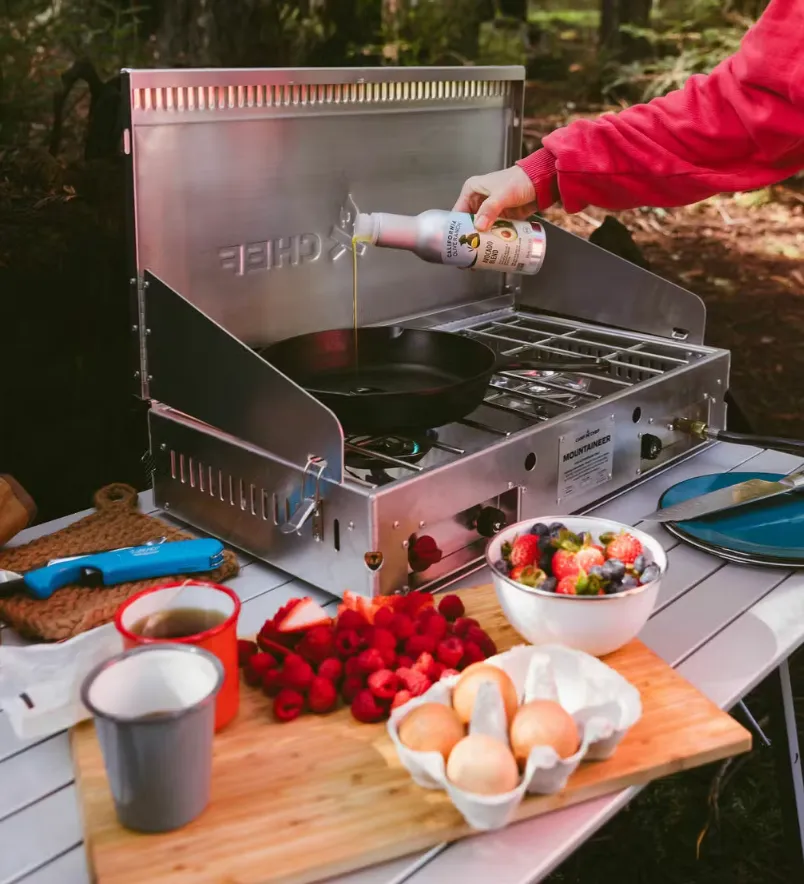
Olive oil and sauce manufacturer California Olive Ranch introduced a line of oils in aluminum bottles instead of the traditional glass bottles. The recyclable bottle is the company’s smallest, lightest container so far. It includes a HDPE cap and BPA-free liner. California Olive Ranch also said in a release that this product is more affordable for consumers.
The company notes that the aluminum withstands prolonged exposure to outdoor elements so the product can be used outside while preserving the oil’s quality. Glass bottles do not offer the same protections against light, which can alter oil and cause it to turn rancid.



